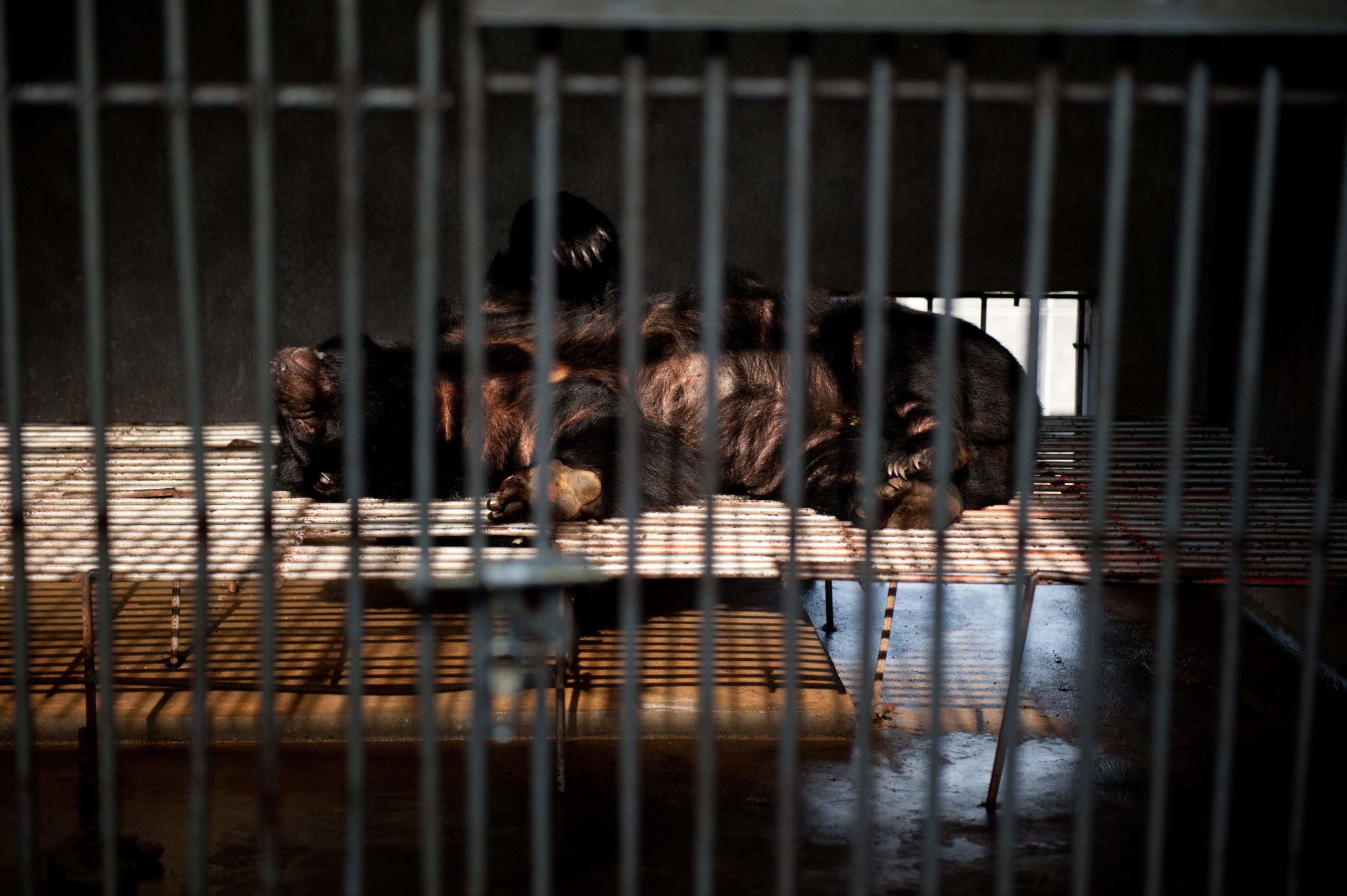
NO LESSON LEARNED China’s National Health Commission last month approved the use of bear bile to treat COVID-19 patients, angering activists and raising fears it could undermine efforts to stop the illegal animal trade, which is blamed for the emergence of the newdisease sweeping the globe. File photo taken on Feb. 22, 2012, shows a bear napping in its cage at one of the traditional Chinese medicine company Guizhentang’s controversial bear bile farms in Hui’an in southeast China’s Fujian province. —AFP
BEIJING—China has approved the use of bear bile to treat coronavirus patients, angering activists and raising fears it could undermine efforts to stop the illegal animal trade, which is blamed for the emergence of the new disease sweeping the globe.
The move comes just weeks after China banned the sale of wild animals for food, citing the risk of diseases spreading from animals to humans.
But the National Health Commission in March issued guidelines recommending the use of “Tan Re Qing”—an injection that contains bear bile powder, goat horn and three other medicinal herbs—to treat critically ill COVID-19 patients.
It is one of six traditional Chinese medicine products included in the directive.
Traditional medicine
President Xi Jinping has been keen to promote traditional medicine, calling it a “treasure of Chinese civilization” and saying it should be given as much weight as other treatments.
The active ingredient in bear bile, ursodeoxycholic acid, is used to dissolve gallstones and treat liver disease but has no proven effectiveness in treating COVID-19.
China has used both traditional and Western medicine in its battle against the new coronavirus, which has killed more than 3,000 and infected more than 82,000 in the country.
But activists say greenlighting a treatment that uses an animal product is “both tragic and ironic,” given that the origin of the deadly coronavirus is linked to the trade and consumption of wild animals.Cruel trade
Chinese disease control officials have previously identified wild animals sold in a Wuhan wet market as the source of the coronavirus pandemic.
Conservationists have long accused China of tolerating a cruel trade in wild animals as exotic menu items or for use in traditional medicines whose efficacy is not confirmed by science.
Scientists say Severe Acute Respiratory System (SARS)—another deadly coronavirus—likely originated in bats, later reaching humans via civet cats.
“Promotion of bear bile has the propensity to increase the amount used, affecting not only captive bears but also those in the wild, potentially compromising an already endangered species in Asia and across the world,” said Brian Daly, a spokesperson for the Animals Asia Foundation.
There are about 20,000 bears being held in tiny cages under cruel conditions across China to cater to the demand from traditional medicine suppliers, said Kirsty Warren, a spokesperson for World Animal Protection.
Bile farming is legal in China—but exports of the product or treatments made from it are banned under the Convention on International Trade in Endangered Species, which China is a signatory to.
“The active ingredient in bear bile is readily synthesized in laboratories, so even if it did prove to be popular, there should be no need for bear bile to be included (in medicines),” said Richard Thomas from animal rights nongovernmental organization Traffic.
China in February declared an immediate and “comprehensive” ban on the trade and consumption of wild animals that was welcomed by environmentalists.